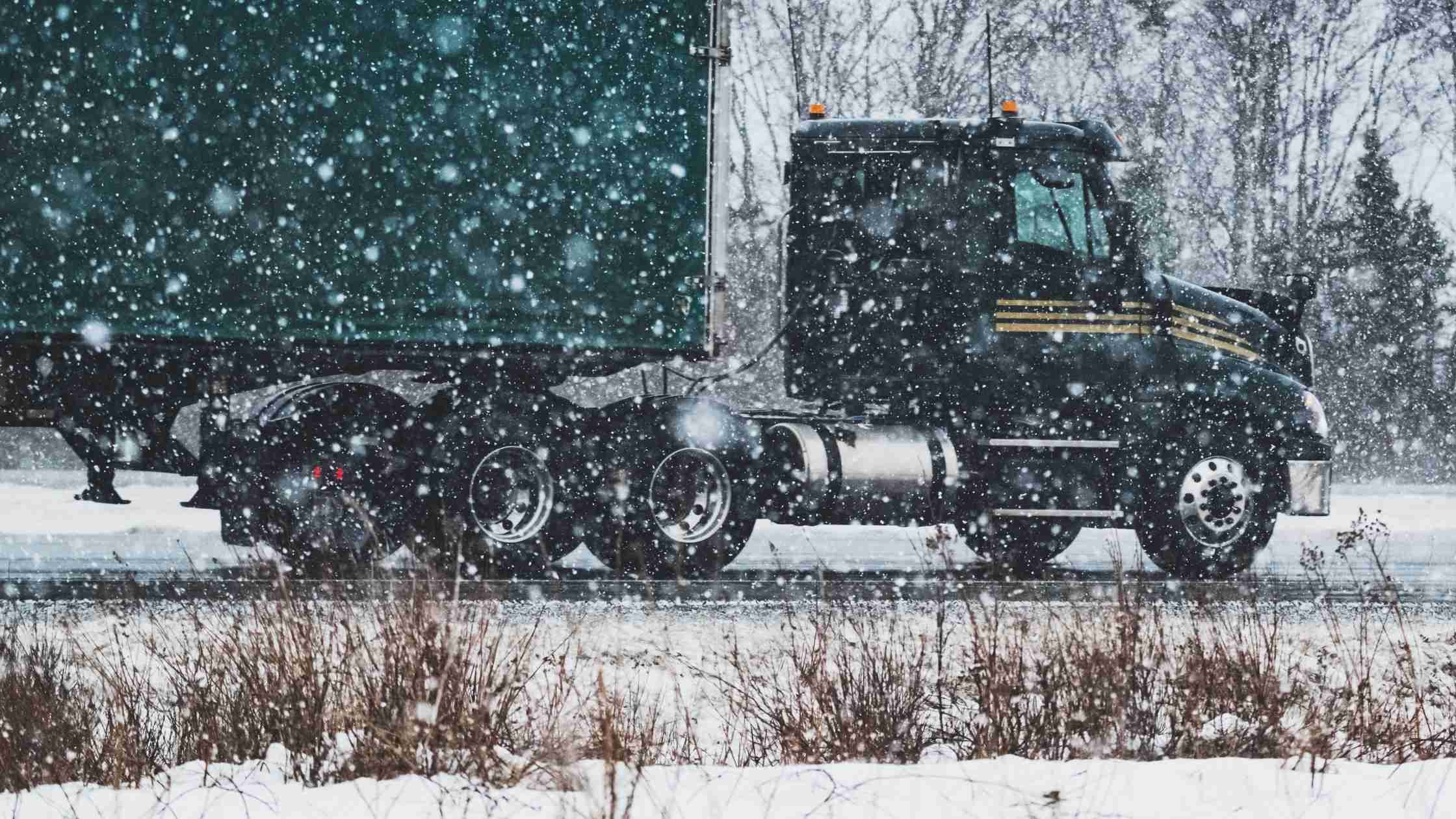
If you're a truck driver that operates in areas with freezing temperatures, then you might have experienced when fuel gelled in your tank. Diesel gelling occurs when wax crystals form in the fuel. This can result in clogged fuel filters, less engine power and potentially even complete engine shutdown. So, at what temp does diesel gel? When diesel fuel reaches temperatures of 15 degrees or lower, crystals begin to form that cause gelling. Below we list some ways you can prevent diesel gelling from occurring in your truck.
How You Can Tell Your Fuel Gelled
The first thing you should do is look for any signs of gelling. Catching the problem early can save you time, money and headaches. You might've noticed worsened vehicle performance or a decrease in your gas mileage. The easiest way to spot gelling is by checking your engine for clogged filters and fuel nozzles. Other signs like white smoke from the exhaust or black smoke from the tailpipe are early indications of a possible issue. If your diesel fuel gels, then you'll notice a goopy and thicker substance that was once fluid in consistency in the tank and fuel filters.
Ways to Prevent Diesel Gelling
Fortunately, there are a few ways to combat gelling and keep your vehicle fully operational. By following these suggestions, you can ensure engines are running smoothly even in the coldest winters.
1. Use a diesel anti-gel additive.
Purchasing fuel additives that are designed for winter weather is a simple and cost-effective way to maintain your fuel's consistency. Depending on what type of engine you have, you'll want to purchase an additive that will increase cetane, prevent gelling and improve fuel economy. Diesel anti-gel additives can help stabilize your fuel and keep things running smoothly no matter at what temperature your semi truck is operating. Some of the best diesel fuel anti-gel options include the following:
- Lucas Oil 10013 Fuel Treatment: This additive can be used for both gasoline and diesel-powered vehicles. Lucas oil aims to increase MPG while neutralizing any harmful effects of low-sulfur diesel.
- Howes 103060 Diesel Antifreeze and Conditioner: Howes Antifreeze and Conditioner additive works as a great budget-friendly option that lubricates your engine.
- STA-BIL Diesel All Season Anti Gel: STA-BIL Diesel works to demulsify freezing water and can provide anti-gelling protection down to -40 degrees Fahrenheit. This option is best for drivers who operate in extremely cold climates.
- REV X Distance+ Gold Diesel Treatment: This anti-gel additive provides protection for vehicles operating in temperatures of -25 degrees Fahrenheit, making it another great option for diesel engines. It also adds cetane to diesel by 12 points to improve ignition quality.
In cold climates, most trucking fuel cards provide access to diesel fuel that already has winter fuel additives.
2. Add kerosene.
Adding kerosene to your diesel fuel is another option for truckers to consider to maintain fuel consistency. A ratio of 20% kerosene and 80% diesel fuel can prevent gelling while still providing the necessary lubrication your engine needs. Make sure that the kerosene you purchase is undyed and deodorized so that it doesn't damage your fuel system. You can also check your owner's manual to ensure that this type of mixture is safe to use for your engine since different vehicles have different requirements.
3. Keep your vehicle heated.
If possible, try to keep your vehicle heated while taking breaks from driving. The best way to keep your semi truck heated in cold weather is by using a block heater. A block heater is a device that warms up your vehicle's engine and fluids before hitting the road. If you're operating a semi truck in weather that reaches -5 degrees Fahrenheit, then it's highly advised to keep your engine heated to avoid any cracks or damages that can result from freezing.
Conclusion
Diesel gelling is a serious issue for truckers that operate in colder states. First, know at what temp does diesel gel. Second, follow a few precautions to prevent this from happening if you're going to operate in areas with freezing temperatures. Make sure that your truck fuel tank has a diesel anti-gel additive. You can also try adding kerosene as long as your vehicle allows it and you've identified the correct ratio of kerosene to diesel fuel. Also, try to keep your engine warm with a block heater. Taking these steps can help avoid gelling during freezing temperatures. Remember, prevention is better than cure, so take care of your vehicle and stay safe on the road.





